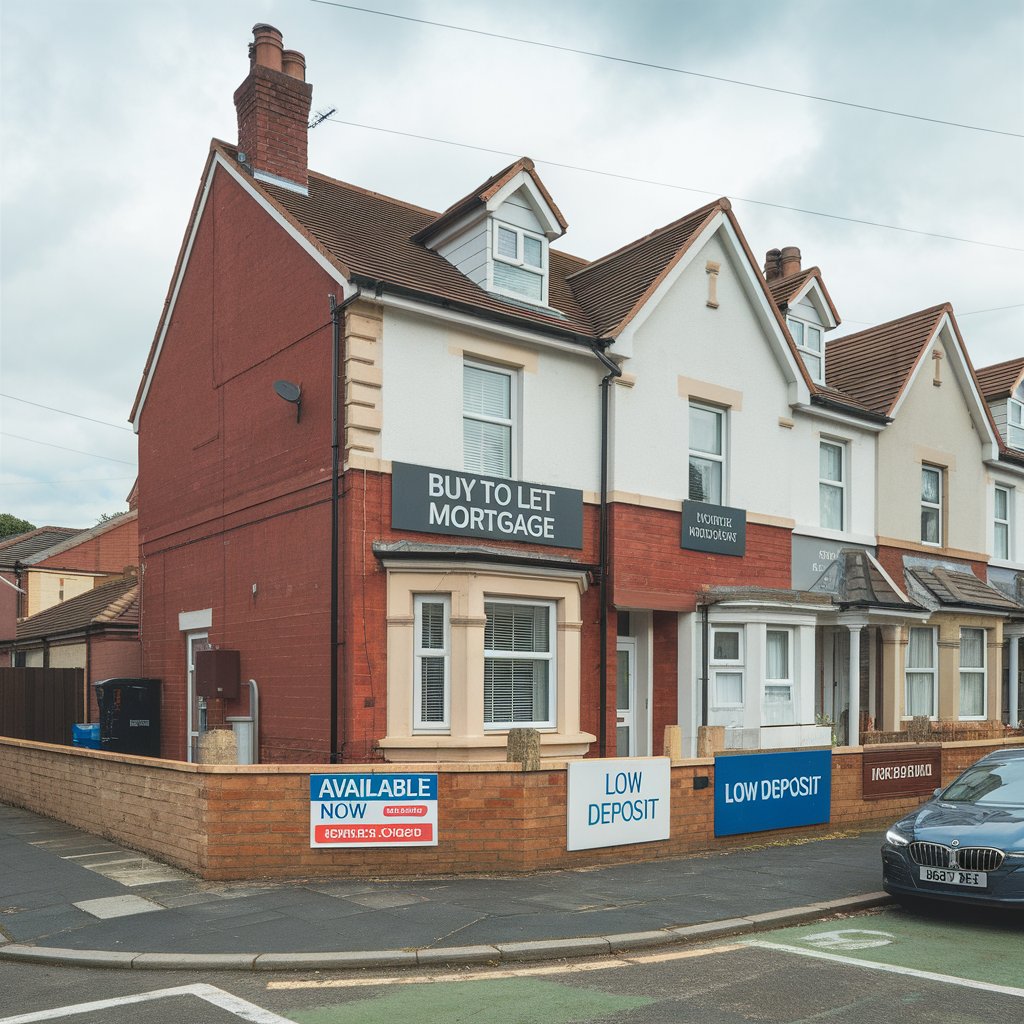Welcome to our comprehensive guide about mortgages and finance. Many people feel stressed when trying to get a mortgage. Fortunately, mortgage advice from a professional mortgage broker can ease that pressure. In this section, you’ll learn how a broker can save you time, explain different mortgage options, and help you find the best mortgage deal for your needs.
What Does a Mortgage Broker Do — and How to Choose One?
A mortgage broker can help you understand complex financial terms, compare mortgage rates, and complete the mortgage application process. To choose a mortgage broker, look at their qualifications, communication style, lender access, and past client reviews.
Mortgage Broker Fees vs Mortgage Broker Costs
People often wonder about mortgage broker fees and how they compare to direct costs you pay. Some brokers receive commission from lenders, while others charge clients a fee. It’s wise to ask if they combine both methods, as regulations require transparency about how brokers are paid.
Understanding this helps you see any extra expense added to your mortgage. For example, a broker might charge a flat rate or a percentage of the mortgage amount. A flat rate can be simpler to understand, but a percentage might cost more if you borrow a large sum. You should also confirm who covers any arrangement or administration fees. Sometimes, those can be rolled into the final deal, which might affect your monthly repayments. Being aware of such details also helps you plan for your overall mortgage payoff, ensuring you understand the true cost over time.
Being clear about costs upfront allows you to plan better and avoid unpleasant surprises later. Clarity with your broker’s pricing can save you from headaches during your mortgage process and fosters confidence overall.
| Payment Method | Notes |
|---|---|
| Flat Fee | Broker charges a set amount |
| Commission | Broker paid by lender after completion |
| Hybrid | Combination of client fee and lender commission |
Commercial Mortgage Brokers and Their Role
Commercial mortgage brokers specialise in loans for business properties, including offices, shops, or warehouses. They understand different rules than those for residential mortgages, such as higher interest rates or stricter qualifications. A reliable broker studies your company’s finances, then matches you with lenders who focus on business-friendly terms.
By tapping into their network, they can often negotiate rates or set up flexible repayment plans. It helps to discuss your long-term business goals, because certain loans might restrict property changes or expansions. In many cases, these brokers can spare you from significant headaches if your balance sheet is complex.
For larger deals, their advice on structuring finance packages can be vital. Make sure you ask about industry experience and track record to ensure they fit your exact needs. If you plan to expand over time, a knowledgeable commercial broker can guide you toward sustainable growth through proper mortgage choices.

Why Use a Mortgage Broker for the Right Mortgage?
Many buyers wonder whether it’s worth using a mortgage broker. A broker may help by providing access to multiple mortgage lenders, comparing mortgage rates, and handling the application process. Part of this support includes mortgage interest rates, so you clearly see the value in each deal. This can be especially useful when your finances are complicated, or when you’re unsure which type of mortgage is most suitable. A mortgage broker may be able to negotiate better terms or find lenders more willing to approve your unique case.
Understanding Buy-to-Let Mortgage Broker Services
Investors often look for buy-to-let mortgage broker services to finance rental properties. These mortgages differ from standard residential mortgages. A broker in this area knows how to match rental income projections with lender requirements. Strong guidance can improve your profit margin and prevent costly mistakes along the way.
Buy-to-Let Mortgage Brokers vs Residential Brokers
When comparing buy-to-let mortgage brokers with residential specialists, the main difference is in property usage. Residential brokers focus on primary homes where you or your family live. In contrast, buy-to-let experts handle applications intended for rental income.
Because lenders see investment properties as higher risk, interest rates and deposit requirements might be larger. Also, the financial review can be more detailed, since lenders want to confirm the rent covers monthly payments. A dedicated buy-to-let broker can help you plan properly so that you don’t take on commitments you cannot handle.
They might also assist with stress tests, ensuring you can handle changes in the market. Another benefit is their familiarity with specific lenders who focus on landlord-friendly deals. This can save you considerable research time. In the end, choosing a specialist for your rental venture helps reduce complications. Seek solid advice early.

Ask a Mortgage Broker About Investment Properties
People often assume investment properties are simple money makers, but it’s wise to ask a mortgage broker about the risks and rewards first. You need to factor in repairs, maintenance, possible vacancies, and local market shifts. A skilled broker can discuss mortgage types designed to support rental ventures, including interest-only options that keep monthly costs lower.
They can also guide you through stress testing, which checks whether your rent still covers payments if interest rates climb. It’s important to keep your finances flexible, so you don’t get trapped by rising costs. In addition, asking about early repayment charges or other fees can save you from unwanted surprises.
Good brokers also stay aware of shifting property rules or tax changes that can affect your future earnings. This knowledge means you plan better for any changes, preserving your peace of mind throughout your investment journey. Stay well informed.
Tips to Get a Mortgage and Avoid Common Pitfalls
Be cautious of extra broker fees, hidden terms, and limited lender panels. Whether you work with a mortgage broker or not, always compare offers and read the small print. If you feel unsure, get mortgage advice from a qualified mortgage broker.
Can a Mortgage Broker Get Approval Faster?
Many people ask if a mortgage broker can get approval quicker than going solo. Brokers often have direct contacts with underwriters, so they can speed up the process in some cases. They know exactly which documents the lender wants and how to present them properly. This might cut days off your waiting time.
Yet, it’s not a magical solution. If your credit or finances are complex, you’ll still need patience. A broker can suggest ways to strengthen your application, such as paying off small debts or correcting mistakes on your credit report. That said, efficiency varies by broker, so pick someone who has strong references.
You can also help by organising paperwork in advance, like bank statements and payslips. True, some brokers come with extra fees, but if time is your top concern, a good broker might be well worth the investment. Every situation differs, so prepare accordingly.
Without a Mortgage Broker: Is It Risky?
Yes, some people choose to find a mortgage without a mortgage broker. They might prefer talking directly to banks or building societies or using online platforms to compare rates. Doing this solo can save broker fees, but it may also mean extra research time.
You’re responsible for gathering documents, learning lender terms, and negotiating rates. Missing vital information could lead to an unfavourable contract. On the bright side, you keep full control of your journey. Nobody might push you toward a specific lender.
Still, watch out for potential pitfalls like hidden charges or tricky conditions in the mortgage agreement. Reading the fine print helps prevent surprises later. If you have a calm, organised approach, going alone can work. Just be aware it requires dedication. Think about your comfort level with numbers, forms, and negotiations. If you doubt any of that, professional help might be the safer route.
Key Questions to Ask and Steps to Secure the Right Mortgage
You might come across certain key questions to ask a mortgage lender or broker. Part of securing the right mortgage includes learning about rates, mortgage terms, and potential fees. Clear communication matters. By asking these questions early, you gain peace of mind and stay on track for a smoother borrowing experience.
Breaking Down What a Mortgage Broker Does
People often ask what a mortgage broker does best that a typical bank cannot. The short answer is variety. A broker is an intermediary, shopping around multiple lenders while guiding you through the forms. They assess your credit and income to match you with suitable deals.
Some brokers even handle specialist mortgages, like those for older borrowers or people with variable incomes. Brokers can also clarify details like loan-to-value ratios and early repayment charges. They might communicate directly with underwriters, saving you the trouble of repeated calls.
Because they see so many mortgage offers, they can provide fresh insights you wouldn’t get from a single bank or building society. Another benefit is having an advocate if something goes wrong. They chase updates on your behalf, easing the entire process. The bottom line is that a skilled broker can save you time, stress, and possibly money along the way.
Handling Surprises: Pros and Cons of Professional Help
Even when you plan carefully, unexpected events can surface. Having a broker guide you might help reduce shocks, but you should still weigh the pros and cons of using professional help. On the plus side, a broker has prior knowledge of tricky lender requirements, so they can warn you early. They might also pivot quickly if a lender declines your application, guiding you toward another option.
However, not all brokers are created equal. Some might be less transparent about extra fees or maybe less responsive than you desire. Another aspect to watch is whether a broker represents only a small set of lenders, which can limit your choices.
Remember to ask for clarity around each step, so you know exactly what’s happening. By maintaining open communication, you can handle twists with more confidence. In mortgage matters, knowledge and readiness often turn big surprises into minor bumps. Stay alert always.

Conclusion
Finding the best mortgage path takes patience and research. Whether you hire a broker or go it alone, be sure you understand key terms and any potential pitfalls. No two borrowers are exactly alike, so pick the route that feels right for your circumstances.
Remember that mortgage brokers must provide clear information about their fees and services. With good preparation and the right guidance, your homeownership dream is closer than you think.




